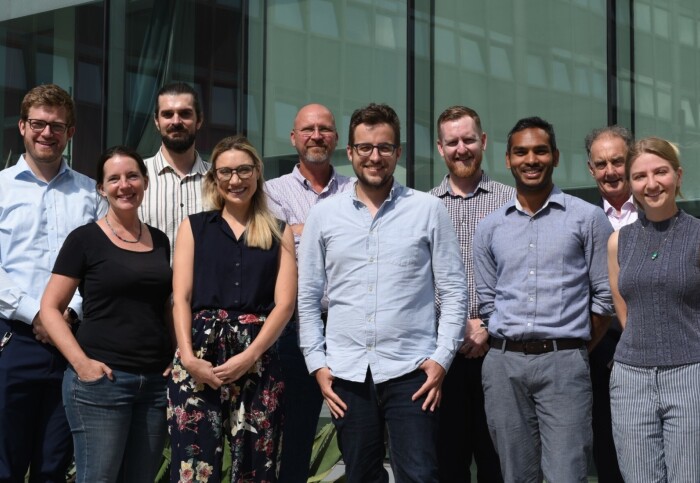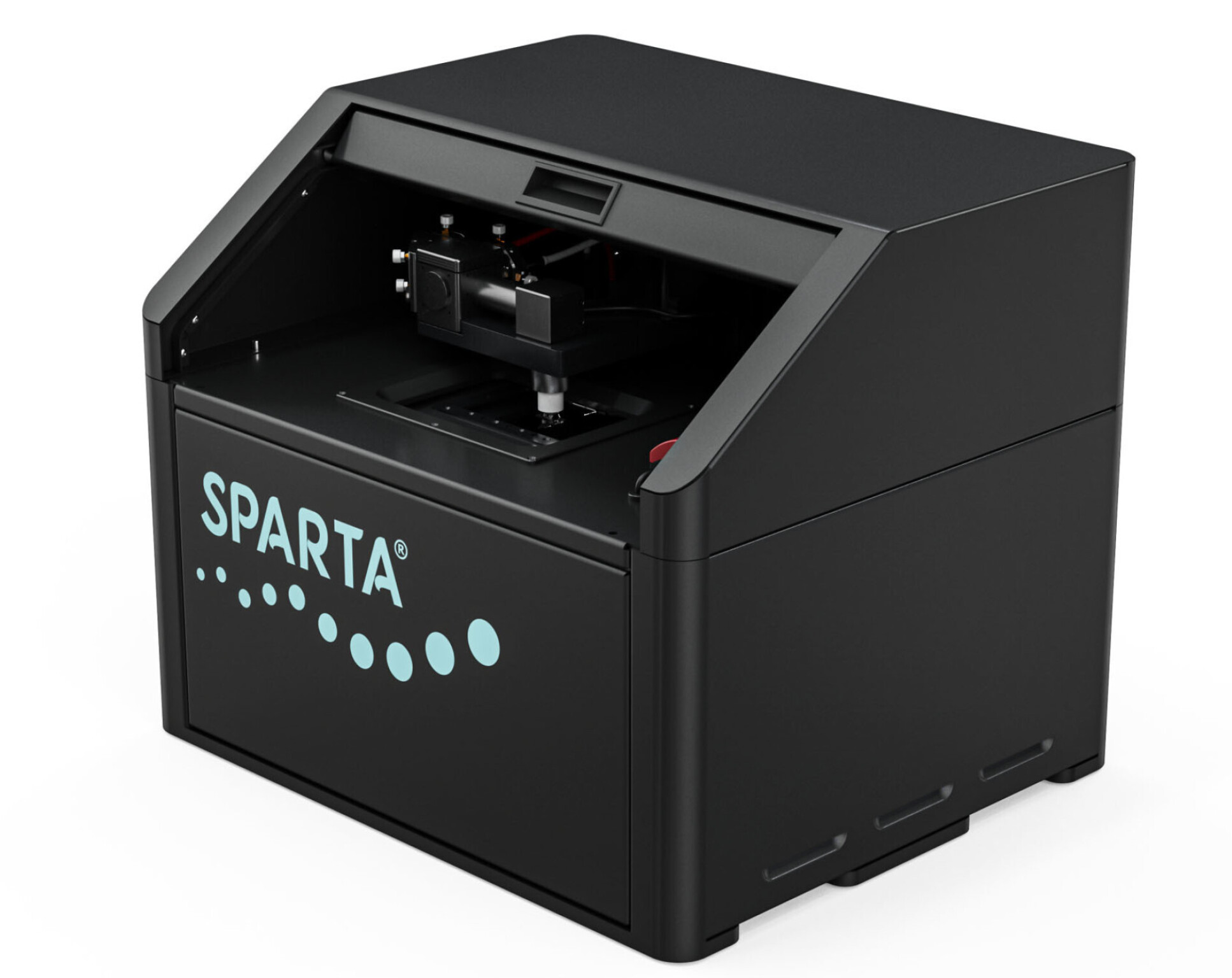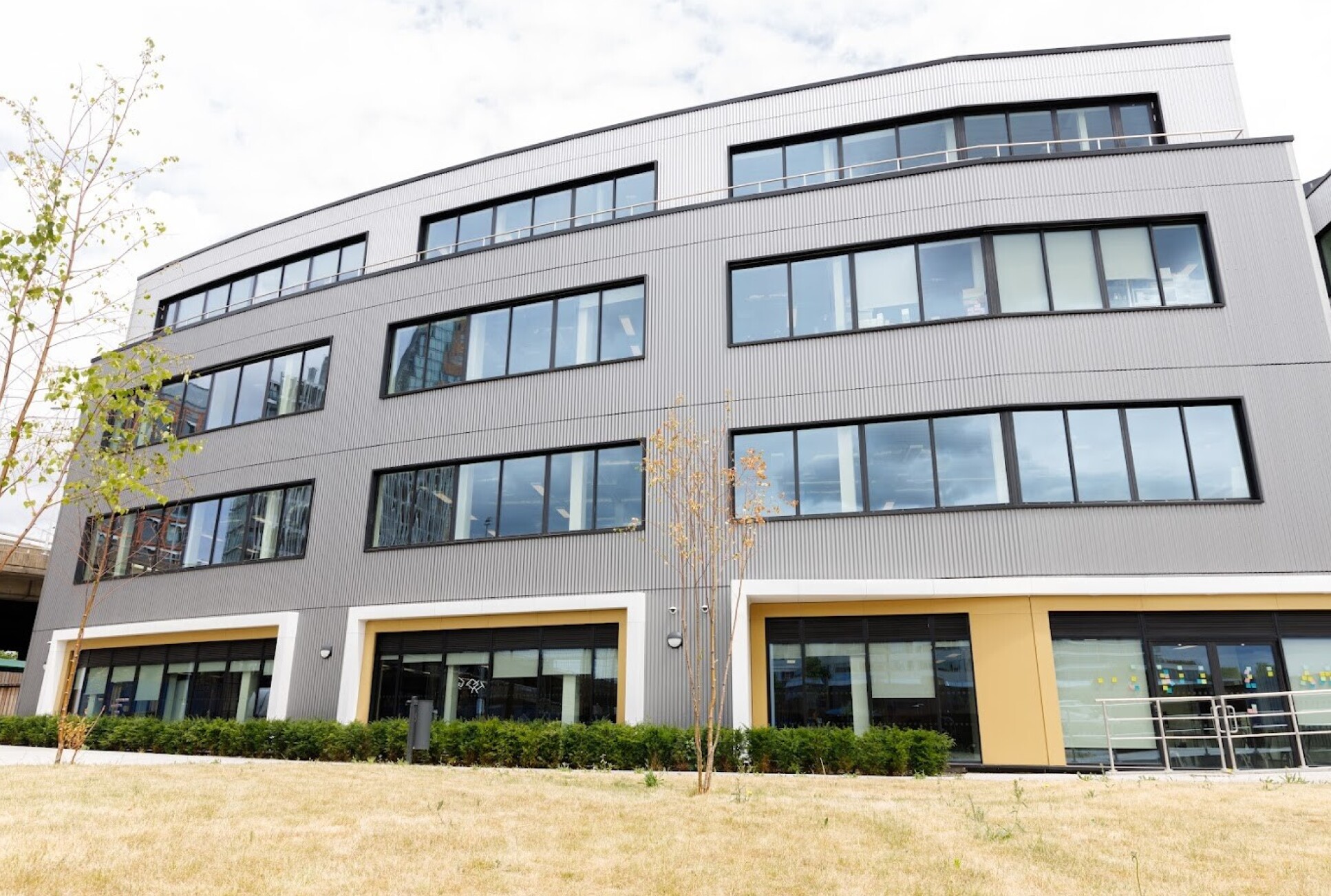Spinout SPARTA Biodiscovery speeds commercial roll-out with up to £3.5m funding
by Ian Mundell

The SPARTA Biodiscovery team
A multi-million-pound investment from industry partner Sartorius will support deployment of SPARTA Biodiscovery’s nanoparticle analysers.
Imperial spinout SPARTA Biodiscovery was created to bring novel analytical methods to the development and production of nanoparticles used in advanced medicines. After little over a year in operation, the company has now secured a multi-million-pound seed investment from industry partner Sartorius that will support the deployment of its system in a range of commercial settings.

“The SPARTA platform will help customers optimise the design of nanoparticles at an early stage, even before the drug candidates move on to the clinic,” says Dr Oscar-Werner Reif, the Head of Corporate Research at Sartorius. “We have teamed up to bring additional product commercialisation and application expertise to the table to facilitate a swift transition from prototype to launch."
Headquartered in Göttingen, Germany, the Sartorius Group provides innovative laboratory instruments and consumables for life sciences research and use in the biopharmaceutical industry, along with bioprocessing solutions for the manufacture of biotech medicines and vaccines. In total, it will invest up to £3.5 million in SPARTA Biodiscovery through its corporate investment unit, Sartorius Ventures, becoming a substantial minority shareholder in the startup.
“We are thrilled to have in Sartorius a partner with extensive experience in this space,” says Dr Jelle Penders, CEO and co-founder of SPARTA Biodiscovery. “The investment and support Sartorius will provide will allow us to move the analytical technology we’ve developed and proven over the past years onto the market quickly, together with consumables and bespoke software.”
Meanwhile, SPARTA is also actively recruiting new talent to its team, and preparing to move into a laboratory in Imperial’s new White City Incubator.
Smaller and smarter
Nanoparticles are tiny polymer or lipid capsules around one thousand times smaller in diameter than a hair. Known medically as nanoformulations, they are used to deliver medicines such as cancer drugs and therapeutic genetic material into the body.
Unlike traditional medicines, nanoformulations are engineered to release active agents only where they are needed, for example at tumour sites, preventing harmful side-effects or loss of potency as they move through the body.
The SPARTA platform will help customers optimise the design of nanoparticles at an early stage, even before the drug candidates move on to the clinic. Dr Oscar-Werner Reif Head of Corporate Research, Sartorius
Building on prototypes developed in Professor Molly Stevens’ group in the Department of Materials, the company’s Single Particle Automated Raman Trapping Analysis (SPARTA®) platform can provide detailed physico-chemical analysis of nanoparticles at high throughput on a single-particle basis.
The platform will help accelerate the design of nanoparticles before they progress to clinical trials and play a key role in manufacturing and quality control.
“We believe that the SPARTA technology will help drug developers significantly shorten the time it takes to get these innovative medicines to patients, and that’s what drives the SPARTA Biodiscovery team.” commented company Chairman Alastair Smith.
Analysis on demand
In its first year, SPARTA concentrated on offering nanoparticle analysis as a service to academics and companies across the globe. This gave them a taste of what the company’s technology could do. “We’ve had tremendously positive reactions to that, and a lot of interest in further collaboration,” Dr Penders says. “People loved what the instrument could do, the level of service and the quality of reports we could produce.”
“We’ve achieved some initial market validation of the technology through the service work, and that’s going to support the scaling of instrument development,” says Dr David Choveaux, SPARTA’s business development manager.

The company will now build on this success and start sending its instruments out to be used by partners in a range of laboratories. “We are looking to place instruments in a number of different sectors and settings, from academic and government research institutes, to large and small companies,” says Professor Stevens, who is a co-founder of SPARTA.
This could involve people working on gene therapy, on cancer therapeutics, with lipid nanoparticles or with non-viral vectors.
Our first adopters will be able to provide us with key feedback to support a full commercial launch in 2024. Dr Jelle Penders SPARTA Biodiscovery
“Over the next six months we are providing early access to the SPARTA instrument through in-field placements,” says Dr Penders. “These first adopters will be able to provide us with key feedback to support a full commercial launch in 2024.”
Meanwhile, the service side of the business will continue as a means of introducing new users to the technology. “We are also exploring service contracts on a larger scale, as partnerships with customers,” Dr Penders explains. “So, rather than buying two or three instruments, we would have a longer-term collaboration or develop a bespoke solution that meets the customer’s needs.”
Growing into the role
SPARTA Biodiscovery’s team is also growing. Recent additions include two new staff members who have recently completed their PhDs with the Stevens Group, and recruitment is under way for a project manager and an optical engineer with industry experience.
“We are building the team as quickly as we can, and completing development of the instruments at speed,” says Dr Choveaux.

Currently based in offices at Scale Space on the White City Campus, SPARTA Biodiscovery has recently signed a lease for a laboratory in Imperial’s new White City Incubator.
“It’s nice to combine the two, so that we have the incubation and start-up side from the Incubator, along with all the business contacts from being in the Scale Space hub,” says Dr Penders. “The White City Campus is a great environment, with a really vibrant community, and the Incubator labs look amazing.”
Article text (excluding photos or graphics) © Imperial College London.
Photos and graphics subject to third party copyright used with permission or © Imperial College London.
Reporter
Ian Mundell
Enterprise